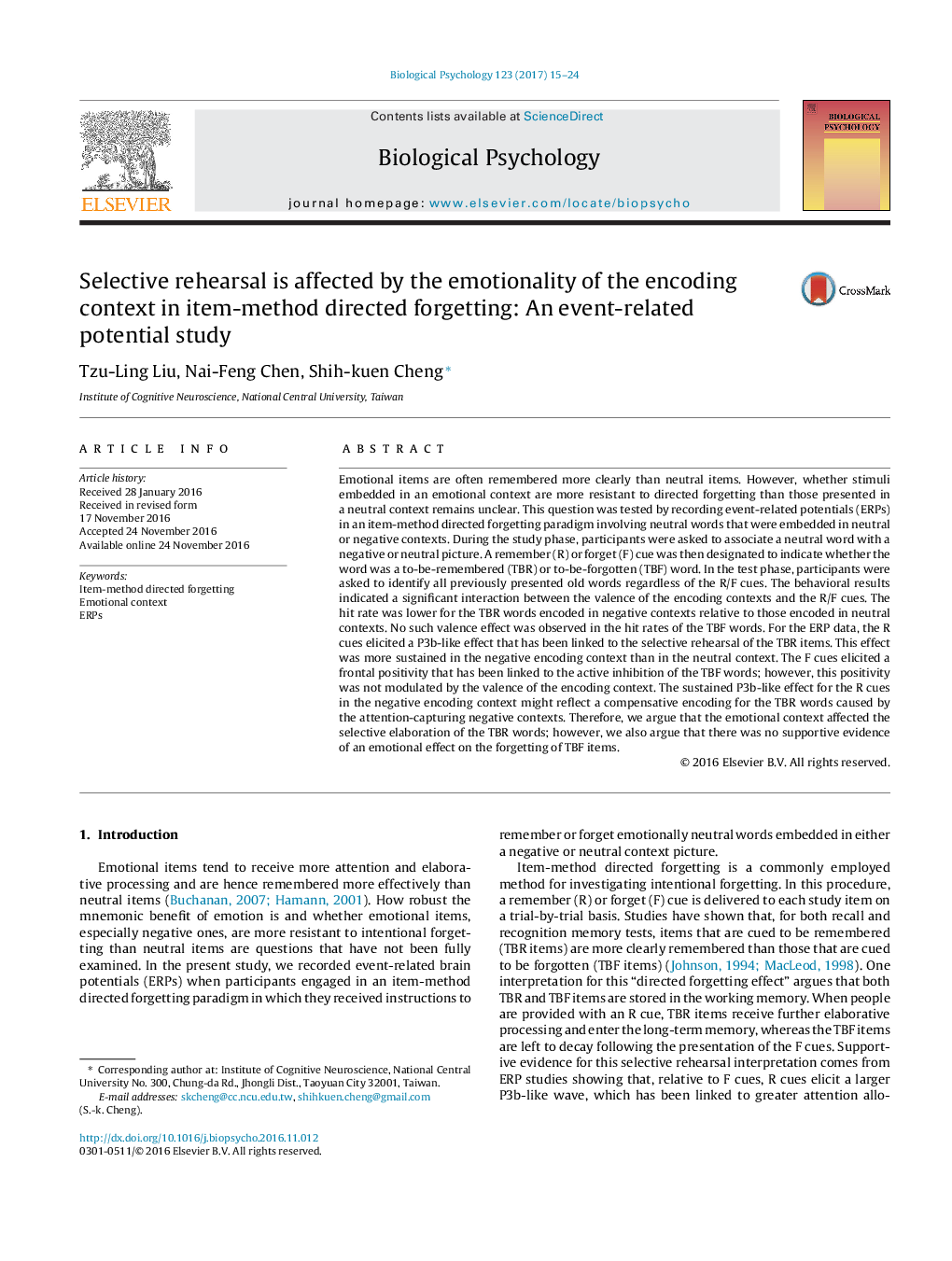| کد مقاله | کد نشریه | سال انتشار | مقاله انگلیسی | نسخه تمام متن |
|---|---|---|---|---|
| 5040522 | 1473851 | 2017 | 10 صفحه PDF | دانلود رایگان |
- The directed forgetting effect is reduced for neutral items encoded in a negative context.
- The reduced directed forgetting effect is due to a worse memory for to-be-remembered items presented in the negative context.
- The Remember cues in the negative encoding context elicited a more sustained P3b wave.
- The emotionality of the encoding context affects the selective rehearsal of the to-be-remembered items.
Emotional items are often remembered more clearly than neutral items. However, whether stimuli embedded in an emotional context are more resistant to directed forgetting than those presented in a neutral context remains unclear. This question was tested by recording event-related potentials (ERPs) in an item-method directed forgetting paradigm involving neutral words that were embedded in neutral or negative contexts. During the study phase, participants were asked to associate a neutral word with a negative or neutral picture. A remember (R) or forget (F) cue was then designated to indicate whether the word was a to-be-remembered (TBR) or to-be-forgotten (TBF) word. In the test phase, participants were asked to identify all previously presented old words regardless of the R/F cues. The behavioral results indicated a significant interaction between the valence of the encoding contexts and the R/F cues. The hit rate was lower for the TBR words encoded in negative contexts relative to those encoded in neutral contexts. No such valence effect was observed in the hit rates of the TBF words. For the ERP data, the R cues elicited a P3b-like effect that has been linked to the selective rehearsal of the TBR items. This effect was more sustained in the negative encoding context than in the neutral context. The F cues elicited a frontal positivity that has been linked to the active inhibition of the TBF words; however, this positivity was not modulated by the valence of the encoding context. The sustained P3b-like effect for the R cues in the negative encoding context might reflect a compensative encoding for the TBR words caused by the attention-capturing negative contexts. Therefore, we argue that the emotional context affected the selective elaboration of the TBR words; however, we also argue that there was no supportive evidence of an emotional effect on the forgetting of TBF items.
Journal: Biological Psychology - Volume 123, February 2017, Pages 15-24
